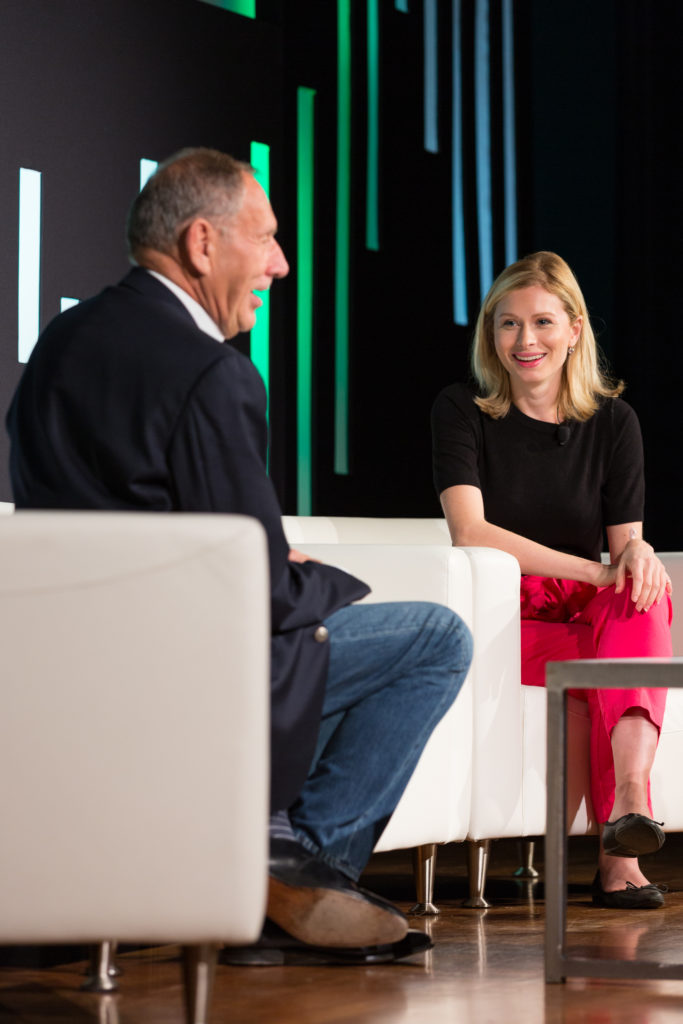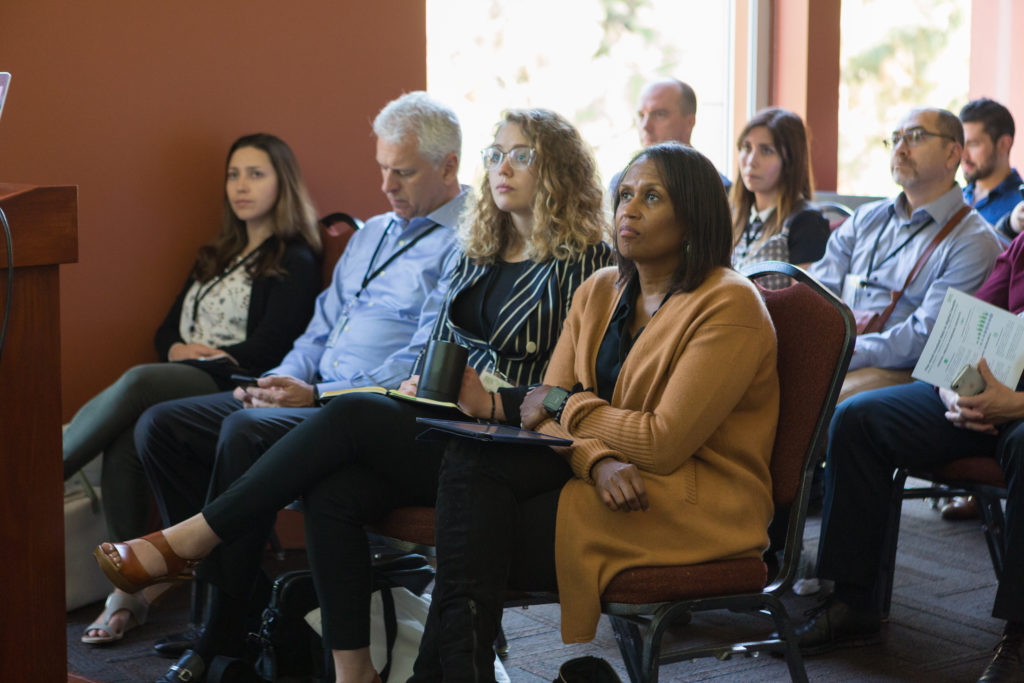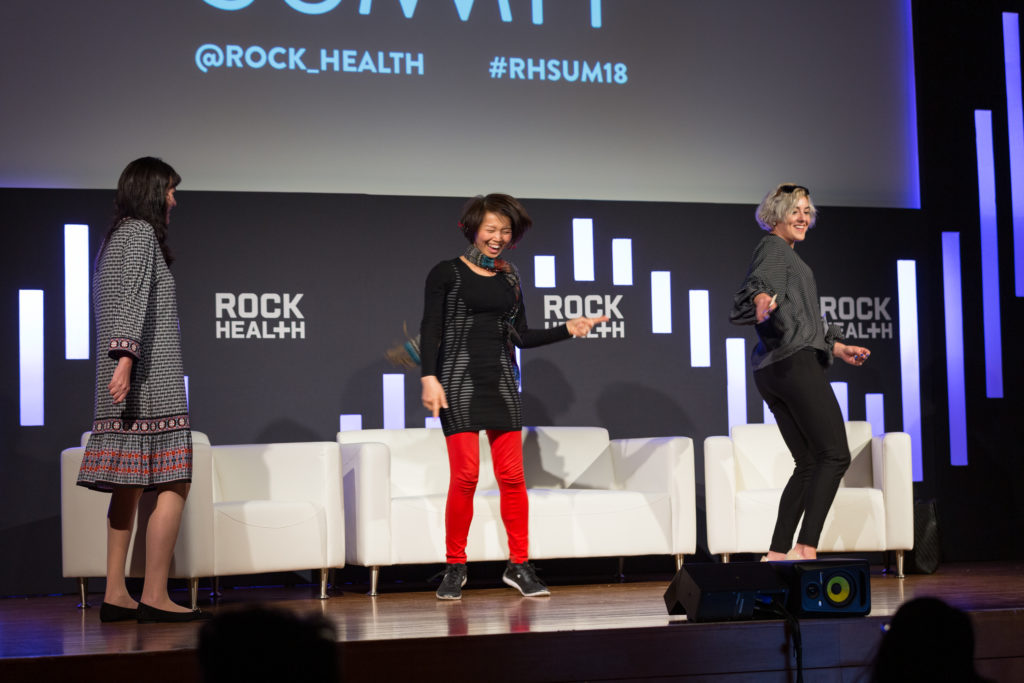Where investment and value align in digital health: takeaways from Rock Health Summit 2018
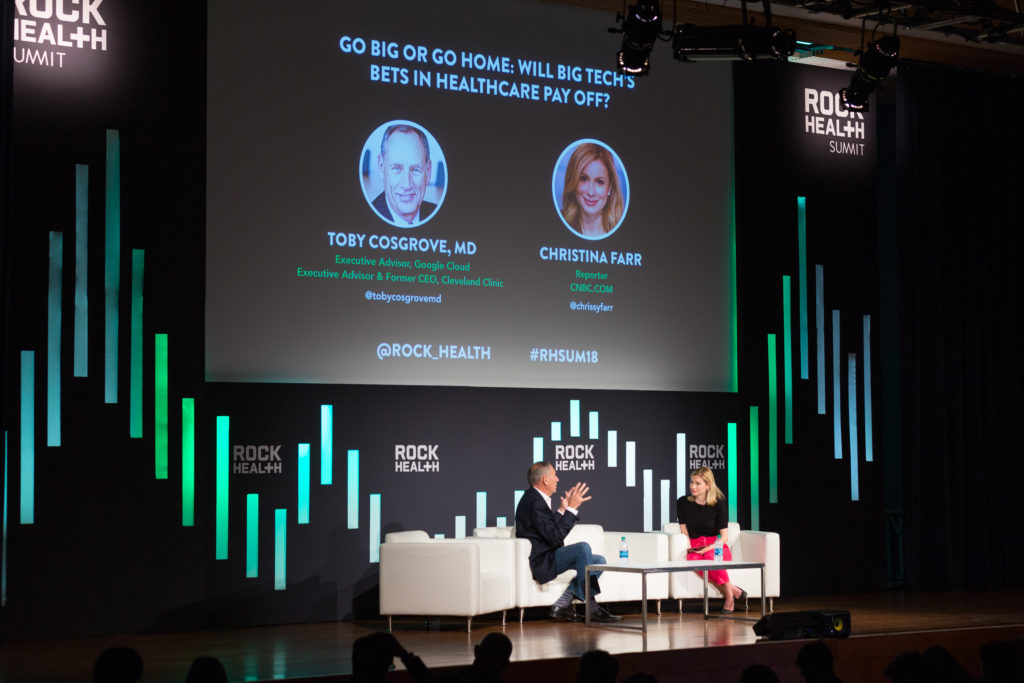
While digital health venture funding continually climbs to new heights, it’s critical to recognize investment is not necessarily coupled with value. So how do incumbents and innovators’ dedication of time, money, and resources to reduce costs and improve delivery of care translate into value added to the market? As digital health forges onward, entrepreneurs armed with growing pocketbooks and established stakeholders seeking to innovate must prioritize creating tangible value to patients, providers, and the healthcare system at large.
Over 700 healthcare enthusiasts joined us for our seventh annual Rock Health Summit to explore where these investments and opportunities for value align—and where technology stands to accelerate the process. “We so often think of healthcare as an industry that we forget about healthcare as a purpose,” said one attendee. “For too long, healthcare has not treated the patient as the primary consumer—but technology is changing this.” We gathered some of healthcare’s brightest minds in one the room and have put together the learnings from two of our favorite sessions. Plug in to the podcast episodes to hear where they see potential to create value in the industry today and in the not-so-distant future.
Healthcare has a data problem. Who’s best poised to fix it?
As hospitals and health systems invest billions of dollars and resources into training staff to implement EHRs and wrangle healthcare data, large technology companies continue their advance into the space. Former Cleveland Clinic CEO and current Senior Advisor at Google Cloud Dr. Toby Cosgrove sat down with CNBC.com’s Chrissy Farr to talk through big tech’s bets in healthcare.
- On the electronic health record: “I don’t think there’s a perfect one.” But Cosgrove, who shepherded Epic into the Cleveland Clinic in 2005, noted 95% of hospitals have invested in some sort of EHR, so they’re not likely to start all over when something new approaches them.
- On the next “killer app”: While there’s opportunity to build on top of the EHR, voice is where it’s at. It’ll take a lot out of the EHR, picking off specialty by specialty in the next year and beyond—with the last being primary care.
- On healthcare’s low-hanging fruit: There are people from both within and outside of the industry who are fascinated with dealing with the most difficult problems in healthcare. But the screaming needs in the delivery of care right now are streamlining operations and reducing operational costs. “It’s the un-sexy side. Think about the two bookends in healthcare: getting in to see a provider and getting the bill out are two needs that need to be automated.”
- On the ever-growing number of outsiders trying to change healthcare: “You can’t do it totally from the outside. You have to get messy inside the healthcare system to find out what the problems are and then how you’re going to address them.”
- On investing in a new type of medical student: In a medical system where doctors are trained not to be entrepreneurial or inventive, how do we create doctors who take more risks? The challenge isn’t just the education—it’s also the overwhelming amount of information and technology. Cosgrove sees value in adopting more technology as part of this shift, like Microsoft’s HoloLens for teaching anatomy and MOOCS (massively open online courses) to reduce teacher burden and democratize education.
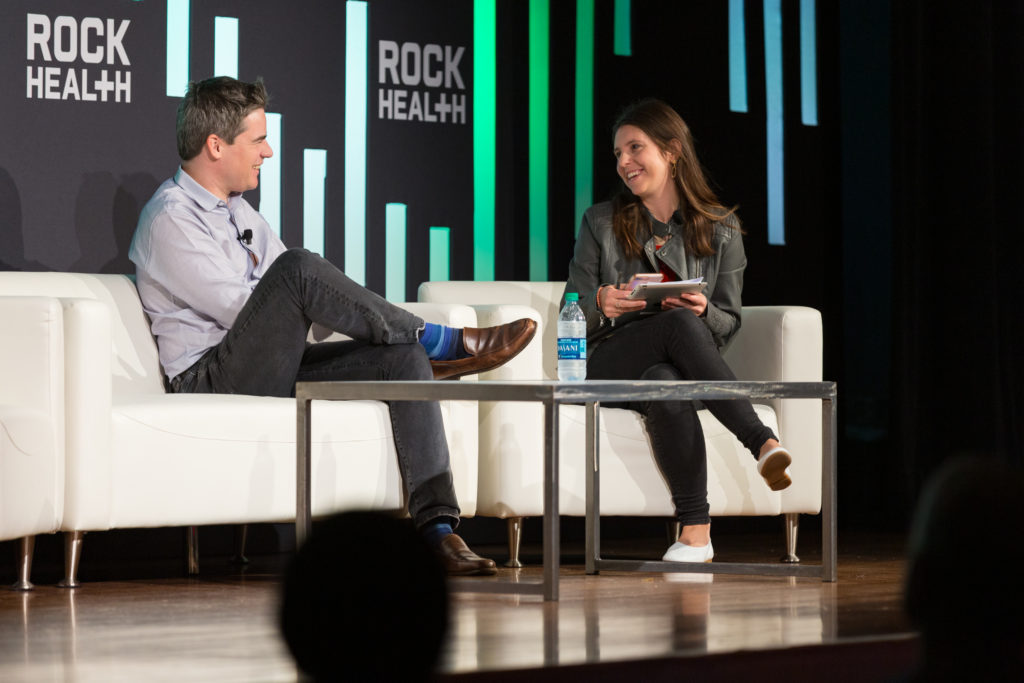
The consumer-first, tech-forward approach to upending health insurance
“The delivery system is un-bundling.” In the eyes of Mario Schlosser, Co-founder and CEO of health insurance startup Oscar Health, all paths lead to giving individuals more of a chance to have a say in their healthcare. Seizing on the opportunity to build insurance around the patient, Oscar has found itself sitting at the heart of dollar and data flow—and earlier this year, Alphabet lined Oscar’s pocketbooks with a fresh $375M. Onstage with Rock Health’s Megan Zweig, Schlosser divulged the startup’s road to success, advice for entrepreneurs, and what capabilities the company is looking to invest in building next.
- On investing in the patient and provider experience: Behind the scenes, Oscar has been deliberate about allocating resources: one-third in the patient experience, one-third in the provider experience, and one-third in the back-office, operational experience. And it’s paying off—Oscar has a lot more control with homegrown, full-stack tech sitting underneath it all.
- On Alphabet’s investment: With those dollars, Oscar will be moving into the Medicare Advantage market by 2020. These are the markets where they are the closest to the individual, which is the biggest part of their model.
- On opportunities to work with Oscar: “Digital health companies coming in are focusing more on the user experience rather than building the clinical product,” Schlosser observed. As the company seeks to do more with digital health solutions in the future, Schlosser says they’d rather pay for really robust clinical insights than they would a UX-focused product—so startups should hone their focus on the clinical logic behind the project.
- On scaling: “Our app and product are scalable, but there are aspects that just have to be done each time. There’s a lot more automation, but the automation is in guiding our people in how they should go about doing their work.” For example, Oscar has built algorithms to help determine opportunities of new networks to enter as the company expands.
- On navigating the regulatory landscape: Schlosser told entrepreneurs to watch what’s happening on the regulatory side, but not to be freaked out or distracted by it. “Don’t assume the regulators are trying to keep you down. Respect the rules—and fight for better ones.”
Subscribe to the Rock Health podcast to be the first to know when new episodes of the 2018 Summit Series are released.

